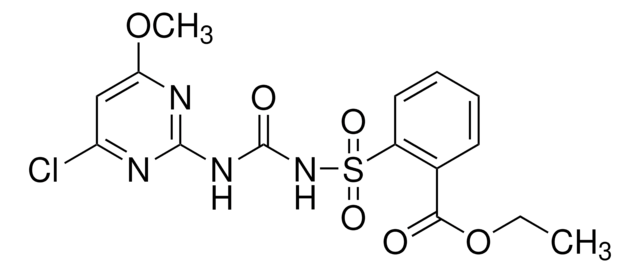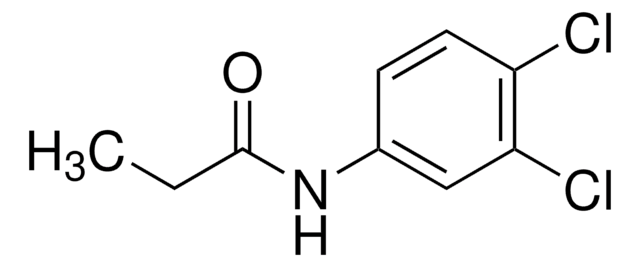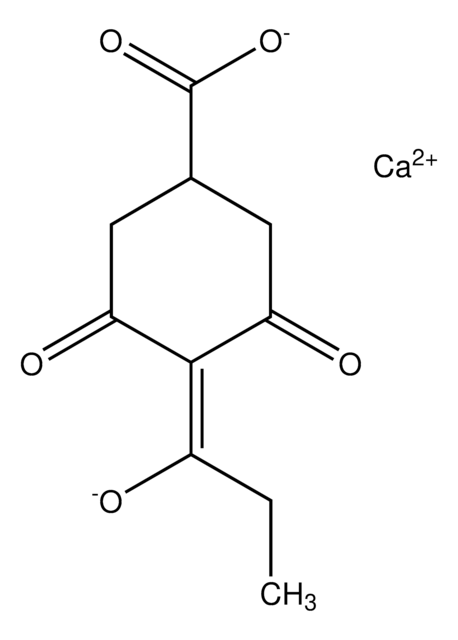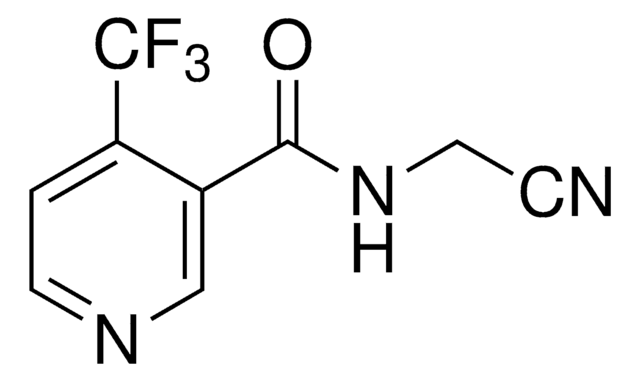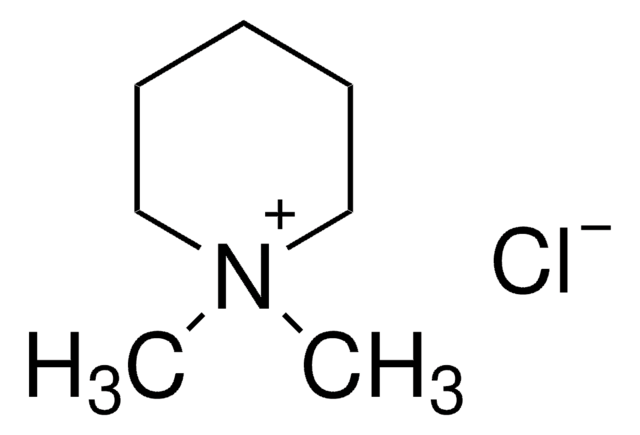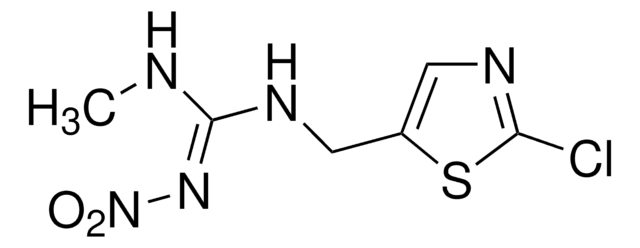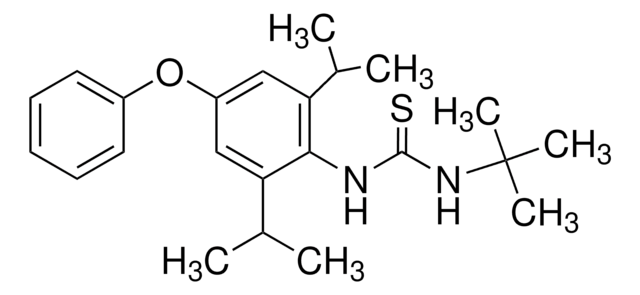06846
Chlorimuron ethyl
certified reference material, TraceCERT®, Manufactured by: Sigma-Aldrich Production GmbH, Switzerland
Synonyme(s) :
Ethyl 2-(4-chloro-6-methoxy-2-pyrimidinylcarbamoylsulfamoyl)benzoate
About This Item
Produits recommandés
Qualité
certified reference material
TraceCERT®
Niveau de qualité
Gamme de produits
TraceCERT®
Durée de conservation
limited shelf life, expiry date on the label
Fabricant/nom de marque
Manufactured by: Sigma-Aldrich Production GmbH, Switzerland
Température de stockage
2-8°C
Chaîne SMILES
CCOC(=O)c1ccccc1S(=O)(=O)NC(=O)Nc2nc(Cl)cc(OC)n2
InChI
1S/C15H15ClN4O6S/c1-3-26-13(21)9-6-4-5-7-10(9)27(23,24)20-15(22)19-14-17-11(16)8-12(18-14)25-2/h4-8H,3H2,1-2H3,(H2,17,18,19,20,22)
Clé InChI
NSWAMPCUPHPTTC-UHFFFAOYSA-N
Vous recherchez des produits similaires ? Visite Guide de comparaison des produits
Catégories apparentées
Description générale
Certified content by quantitative NMR incl. uncertainty and expiry date are given on the certificate.
Download your certificate at: http://www.sigma aldrich.com
Chlorimuron-ethyl is a member of sulfonylurea herbicides used wildly for pre- and post-emergence control of broad-leaved weeds in soybeans, maize, peanuts, beans, and other crops. It is characterized by very low application rates, high herbicidal activity, good crop selectivity, and low toxicity.
Chlorimuron-ethyl is an acetolactate synthase (ALS) inhibitor, that acts by inhibiting the biosynthesis of the essential amino acids like valine, leucine, and isoleucine. This stops the plant growth as cell division of growing roots and shoots tips are inhibited.
Application
- To develop and validate an RP-HPLC method for the determination of metsulfuron-methyl, chlorantraniliprole, and chlorimuron-ethyl residues in stems of Oryza sativa
- To study the rate of biodegradation of chlorimuron-ethyl using Pseudomonas sp. LW3 in liquid culture and contaminated soil
- To investigate the toxicological effects of chlorimuron-ethyl, cadmium, and copper on germination rate and shoot and root elongation of wheat Triticum aestivum
- Study the effect of chlorimuron-ethyl on physiological mechanisms in wheat and identify valuable biochemical biomarkers for the pollution of chlorimuron-ethyl in soil-plant systems
- Study the biochemical responses to joint stress of chlorimuron-ethyl and cadmium in wheat Triticum aestivum
- To study the photolysis of chlorimuron-ethyl on a soil surface, under sunlight and UV light
- To determine the photodegradation kinetics of chlorimuron-ethyl in an aqueous solution under sunlight and UV light
Produits recommandés
Informations légales
Mention d'avertissement
Warning
Mentions de danger
Conseils de prudence
Classification des risques
Aquatic Acute 1 - Aquatic Chronic 1
Code de la classe de stockage
11 - Combustible Solids
Classe de danger pour l'eau (WGK)
WGK 3
Point d'éclair (°F)
Not applicable
Point d'éclair (°C)
Not applicable
Faites votre choix parmi les versions les plus récentes :
Certificats d'analyse (COA)
Vous ne trouvez pas la bonne version ?
Si vous avez besoin d'une version particulière, vous pouvez rechercher un certificat spécifique par le numéro de lot.
Déjà en possession de ce produit ?
Retrouvez la documentation relative aux produits que vous avez récemment achetés dans la Bibliothèque de documents.
Notre équipe de scientifiques dispose d'une expérience dans tous les secteurs de la recherche, notamment en sciences de la vie, science des matériaux, synthèse chimique, chromatographie, analyse et dans de nombreux autres domaines..
Contacter notre Service technique